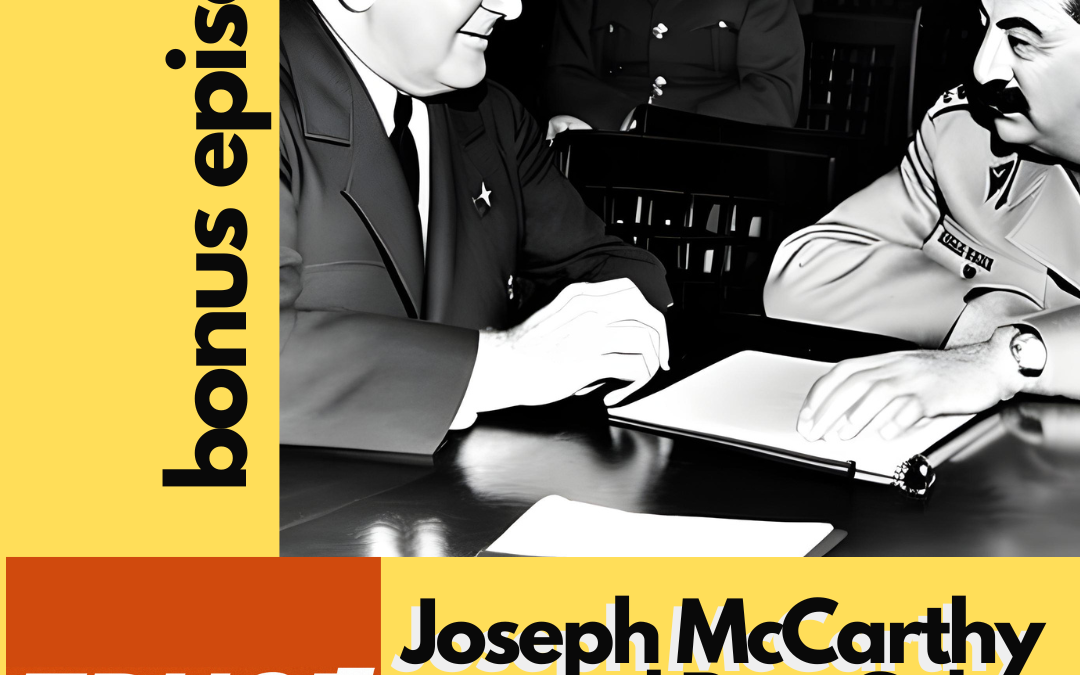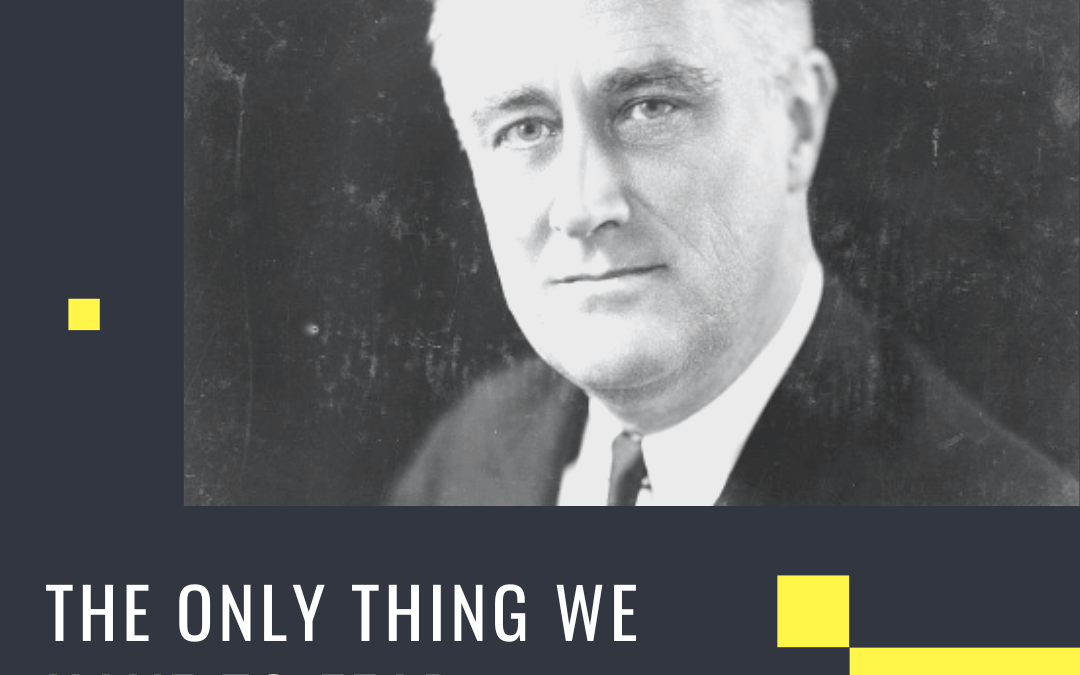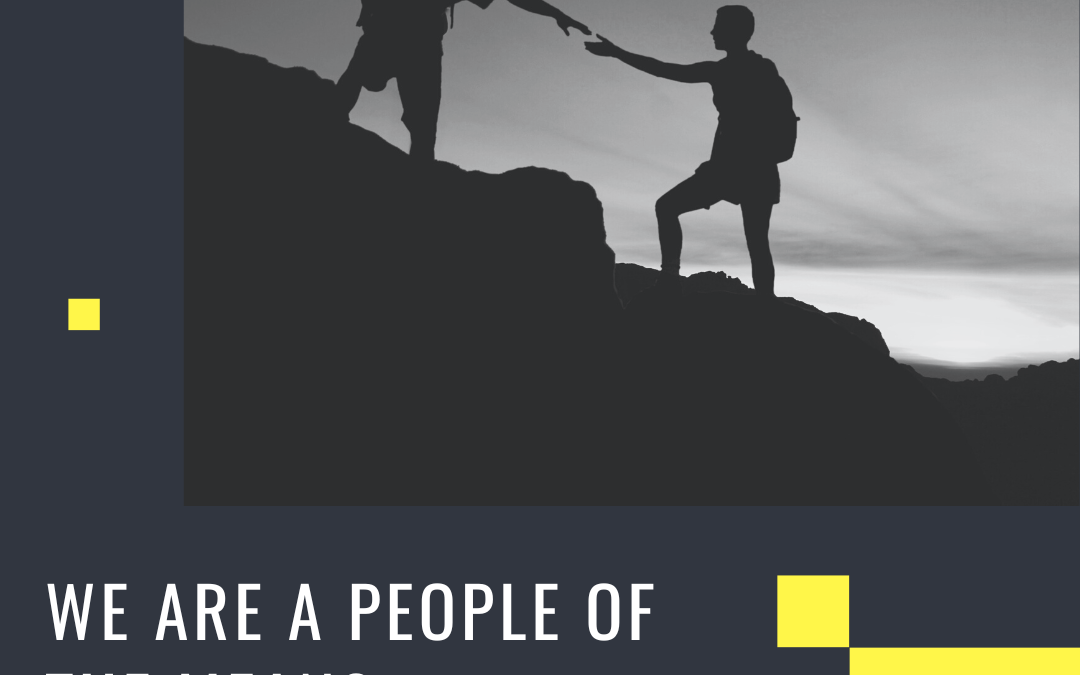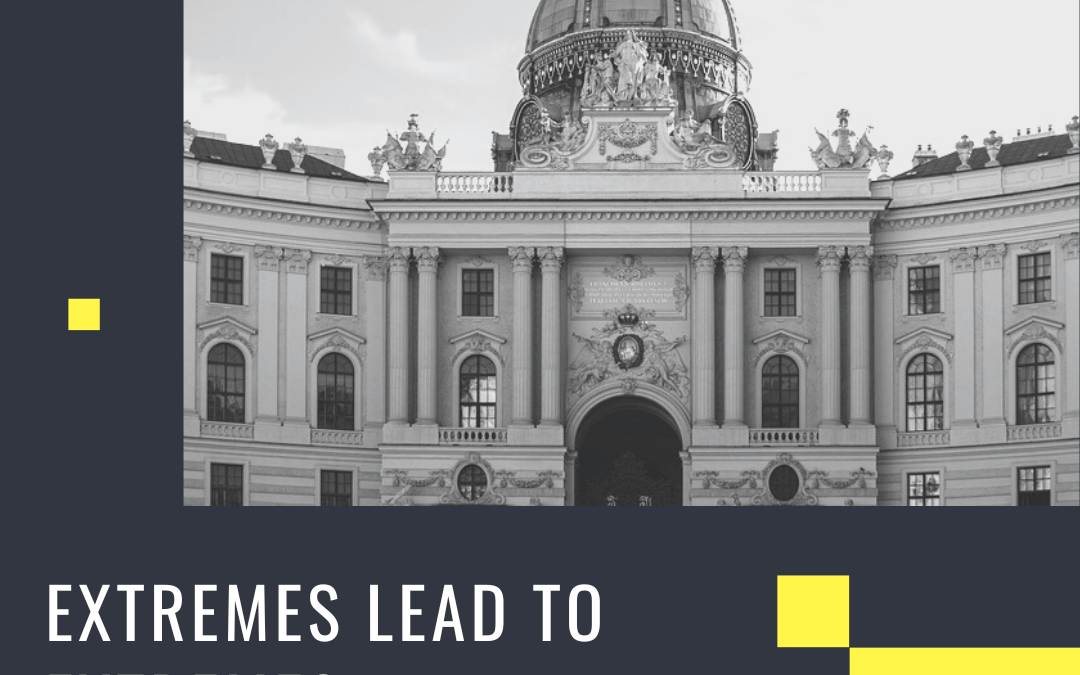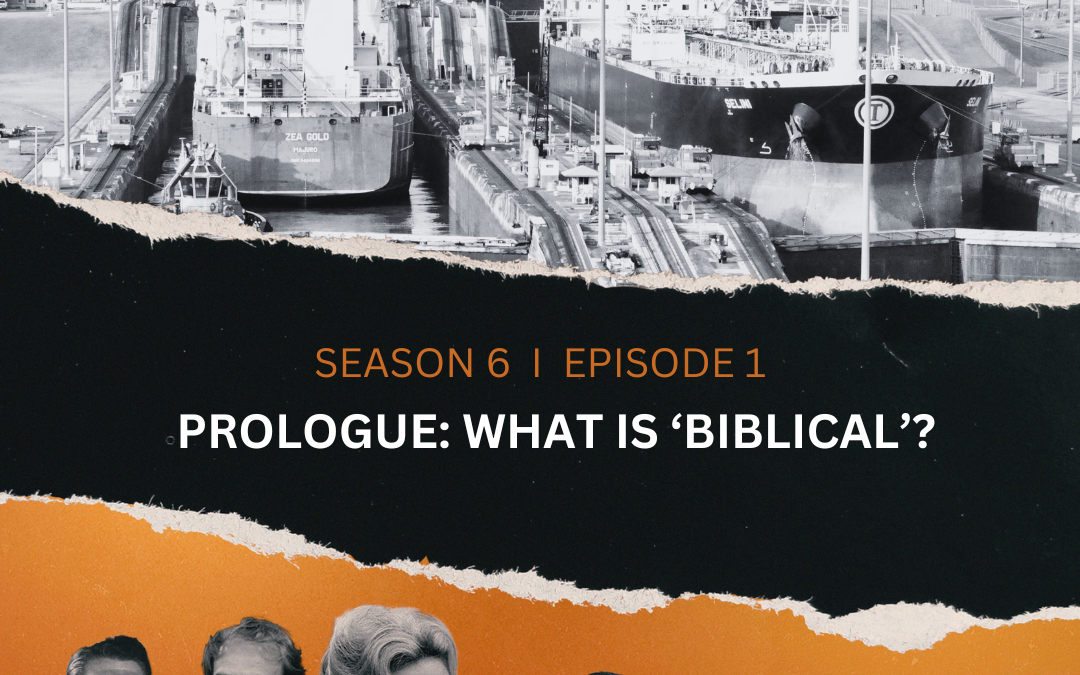
S6:E1 Prelude – What is Biblical?
What do we mean by the word “biblical”?
Give to help the Truce Podcast
Thomas McIntyre stood before the US Congress to deliver a moving speech. The man was being hounded by a fringe movement known as the New Right. The movement came from the work of men like Paul Weyrich, Howard Phillips, and Richard Viguerie. Their goal was to disrupt the Republican Party. They wanted to do away with much of the federal government and program to help the poor while simultaneously cutting taxes and increasing the military. They hoped to accomplish this by controlling direct mail. Direct mail! It sounds silly, but by inundating voters and congressional offices with bulk mail they could control the story.
The New Right
Men like McIntyre and Senator Mark Hatfield didn’t know what to do with this influx of petty politics. Someone had even gone so far as to question Hatfield’s Christian salvation just because of how we was going to vote on the Panama Canal treaty. What does giving the Panama Canal back to Panama have to do with salvation? Almost nothing.
Today, we’re going to explore this wacky phenomenon where we call something “Christian” or “biblical” if it fits out politics not if it is addressed in the Bible. How are we being manipulated by propaganda like this? And what can we do about it?
Discussion Questions:
- Was the United States responsible in its claiming the Panama Canal as a territory?
- Are there things in your life that you mix with Christianity?
- How have your politics gotten confused with your faith?
- Does the Bible have anything to say on the Panama Canal treaty?
- What do we mean by the word “biblical”?
Sources:
- “Reaganland” book by Rick Perlstein
- Handy article on the history of the Panama Canal
- Congressional record including the speeches
Episode Transcript
MCINTYRE: “That said, Mr. President, let me now turn to my second purpose here today.”1
CHRIS: This is an actor reading from a speech given on February 28, 1978. The original speaker was a Democratic Senator from New Hampshire named Thomas McIntyre. By the way, welcome to the Truce Podcast. I know that this probably sounds stuffy, a crazy way to start a season. Where is the action? The drama? The condemnation of an enemy? No, no, no, my friend. This… this is a great speech.
MCINTYRE: “Mr. President, I believe the techniques used to exploit the issue of the canal treaties are the most compelling evidence to date that an ominous change is taking place in the very character and direction of American politics”
CHRIS: He’s in front of the Senate talking about the Panama Canal. One of the most important manmade waterways in the world. It’s about 40 miles long, traveling southeast across Panama. In debate after debate, the Senate wrestled with President Carter’s plan to give the land to the Panamanian people.
The US had been involved with the canal since 1902 with the passage of the Spooner Act. Originally, a French company tried to build there and 20,000 people died, mostly from yellow fever and malaria4. By the way, notice that the US takes over for French imperialism gone awry. The same will be true when we cover the Vietnam War.
The French gave up, so the Americans wanted a shot, guys like Teddy Roosevelt. There was just one problem: they couldn’t get a treaty with Columbia who, at the time, controlled the land. So they did what would become a defacto plan in South America – the US backed a revolution5. And guess what? The new government of Panama was far more receptive. Even more lives were lost to disease, dynamite accidents, and mudslides. But it was ours. A treaty provision allowed the US to act as it wished within a 10-mile zone of the canal, essentially, giving the US a foreign colony6.
That is what was up for debate in 1978. Should the United States return the land to the people? Or, as candidate for the Republican nomination Ronald Reagan said, “we built it, we paid for it, it’s ours”7. This speech by Senator McIntyre is about a lot more than what to do with the canal. It’s about the state of politics in the US.
MCINTYRE: But whatever the cause, Mr. President, I see abundant evidence that these “dangerously passionate certainties” are being cynically fomented, manipulated, and targeted in ways that threaten amity, unity, and the purposeful course of government in order to advance a radical ideology that is alien to mainstream political thought.”
CHRIS: In other words, the US, and the debates over the treaty, were becoming more polarized. The radicals involved were unwilling to work together, even within their own parties.
MCINTYRE: “As a result, the traditional role of the parties is slowly being usurped by a thousand and one passionately committed special interest, splinter faction, and single-issue constituencies.”
CHRIS: What’s more, the splinter groups were mobilized, using cutting-edge technology to go around traditional forms of communication.
MCINTYRE: My colleagues know what I am talking about. They know, as I know, that on any given issue someone somewhere can depress a computer key and within hours or a few days at the most we are inundated by mimeographed postcards and custom-tailored letters and telegrams that vary scarcely a comma in the message they deliver.
CHRIS: That’s true. If a member of Congress took a misstep or followed the party line instead of the opinions of these factions, their offices, those of the media, and other members of Congress were flooded with pre-printed letters demanding that they change their minds. These were not hand-written notes, thoughtfully penned and sent by individuals. No. These letters were sent to constituents through mass mailings. Then those people would sign their names and send them out without so much as an added comment. Bulk mail as a weapon. And it was taking over Congress. Some of it, in the name of Jesus.
Welcome to season six. This season we’re taking a deep dive into one big question. How did evangelical Christians in the United States get associated with the Republican Party? It’s a big story, full of surprises, interesting characters, dynamite, war, money, sexual revolution, righteous indignation, and corruption from all sides. Together we’ll track how the GOP changed from the 1950s through the 1990s, shifting from the party of Eisenhower to that of Ronald Reagan. How factions of Protestantism who rarely worked together found unity in common enemies, then invited Mormons, Catholics, and Jews to join them.
This podcast is non-partisan. Last season I covered the Democratic Party and the rise of fundamentalism, especially in regard to their complicity in Jim Crow laws. Now we’re pivoting to follow Republicans. I’m not here to pick winners and losers. Instead of summarizing a world of movements and characters in one hour, then hiding behind application points, we’re going to take our time. Our goal is to understand how we got to today, where so many evangelical Christians live in a state of constant anger and fear. And we’re going to talk about whether or not that’s what we want, and what we can do about it. I’m your tour guide. I’ve produced this show for six years. I’m an evangelical Christian who directed two gospel films, wrote evangelistic novels, has taught Sunday school. I drive a school bus. Now I’m on the hunt for the story of my people. How did we get here and can we get back to doing the work of the gospel?
Let’s find out. Together.
You’re listening to the show that uses journalistic tools to look inside the Christian Church. We press pause on the culture wars in order to explore how we got here and how we can do better. I’m Chris Staron. This is Truce.
[COMMERICAL BREAK]
CHRIS: McIntyre’s speech was just heating up. His seat in the Senate was under fire. His challenger, an airline pilot named Gordon Humphrey, announced his candidacy two days earlier, and would soon win. Not just on his own merits. Humphrey was backed by a new kind of political machine.
MCINTYRE: “By proceeding from the flawed premise that all of us are alike, it is easy for ideologues to conclude that we must see every issue as they see it unless there is something sinister in our motivation. And they proceed from that premise, Mr. President, with an arrogance born of the conviction that they and they alone have a corner on patriotism, morality, and God’s own truths, that their values and standards and viewpoints are so unassailable they justify any means, however coarse and brutish, of imposing them on others.”
CHRIS: The parties were radicalizing. Not working together. They hunkered down and marketed each other not as those who disagree, but as devils out to destroy the country.
MCINTYRE: “Now I want to be fair about this, Mr. President. In the particular instance of the canal treaties, I am talking about the kind of politics practiced by what has come to be known as the New Right. But I want to note that the record of extremists on the ideological left bears a remarkable, and regrettable, similarity.”
CHRIS: In this speech, he’s going to hone in on the New Right. In another year, he’d co-author a book on the subject, “The Fear Brokers”. Who was the New Right? This cabal started as a small group, so tiny they could fit in a single living room. Their ideas were radical, based on a mishmash of teachings mixed with dramatic tax cuts. They wanted to dismantle the American government, institutions like public schools and aid for the poor. Boost the military. Undo the liberalism of the 1960s. And, yes, those on the left picked up on some of their tactics. McIntyre was here to put into the public record the nastiness of the New Right.
MCINTYRE: “Last summer the national director of the Conservative Caucus, Howard Phillips…”
CHRIS: …one of the founders of the New Right…
MCINTYRE: “…said conservatives should make “a political sitting duck” of Tom McIntyre over the canal treaties and that the Conservative Caucus could, “make it a political impossibility for McIntyre to vote for that treaty.”
CHRIS: This was before McIntyre even knew which way he was going to vote. Howard Phillips and the New Right decided they would force his hand. Their people censured McIntyre, and alleged he was helping the communists if he voted to hand the canal to the people of Panama.
MCINTYRE: “Hear, if you will, the revealing words of Howard Phillips on other occasions: ‘We organize discontent. We must prove our ability to get revenge on people who go against us.・・・ We’ll be after them, if they vote the wrong way. We’re not going to stop after the vote’s past.’
CHRIS: And hear the words of another spokesman for the New Right, Paul Weyrich (pronounced Way-Rick), director of the Committee for the Survival of a Free Congress:
‘We are different from previous generations of conservatives. We are no longer working to preserve the status quo. We are radicals, working to overturn the present power structure of this country.’
Mr. President, these people are different from traditional conservatives. I know the traditional conservatives of my own State. I have competed with them in the political arena. Í have worked with them in behalf of our State. They are people of honor, civility, and decency.
The New Right cannot comprehend how people of opposing viewpoints can find common ground and work together. For them, there is no common ground. And this, in my judgment, is the best indication of what they truly are – radicals whose aim is not to compete with honor and decency, not to compromise when necessary to advance the common good, but to annihilate those they see as enemies.”
CHRIS: This movement, the New Right, would revive a failing political party by radicalizing it. They did so with the backing of big business, the help of direct mailings targeted at people most receptive, then using the money they raised to back their kind of candidates. They smeared anyone who got in their way. McIntyre wasn’t the only representative harassed by the New Right. The same was true for others like Mark Hatfield, Republican from Oregon who spoke later.
HATFIELD: “I have a few letters with me today which are replete with phrases like ‘A vote for support of the treaty is an act of treason.’ ‘You are a traitor for having indicated your support of the treaty. You are not an American.””
CHRIS: Others use anti-semitic language that I won’t repeat here. He goes on to say…
HATFIELD: “The second thing these individuals do is baptize their position with religious nomenclature. I have letters here. ‘I thought you were a born-again Christian. Now I know you are not because you support the treaty.’ They do not bother to ask my view of Jesus Christ in an effort to reach some determination of my salvation: Instead, they chose to make a judgment on my religious salvation on basis of my position regarding the Panama Canal Treaty.”8
CHRIS: Imagine that. Having your faith questioned not based on your relationship with Jesus, the gospels, salvation, your morality, whether you faith bears fruit, or if you dedicated your life to Christ… but on your opinions about the Panama Canal. The Panama Canal!
This gets at the heart of of what we’ll be talking about this season. We’re going to cover a lot of ground. Go deep into the belly of this beast. There may be times where you wonder why we’re even covering the International Women’s Year, supply-side economics, textbooks, public education or televangelists. It’s because it all ties back into what we’ve heard in this speech. Each of these pieces will take us one step closer to understanding this movement that lumps Jesus with national defense, low taxes, corporate gains, the Republican Party, and the New Right.
Before we do, I want to ask you a big big question. I want you to have it ready in your mind when we get to these big issues: what do we mean when we call something “Christian” or “biblical”? Those terms get thrown around a lot. All of the time. To the point of Congressman Hatfield having to wrestle with it on the Senate floor. But what do we mean by it?
Does something have to be explicitly discussed in the Bible to be “biblical”? Let’s use that test. Is voting for the Panama Canal to be returned to the people of Panama explicitly mentioned in the Bible?
I’ve read it multiple times. Panama is never mentioned. So, the issue fails the explicit test.
Perhaps when someone says that something is biblical they mean they’re applying existing biblical principles. Does the Bible have anything to say about handing a canal over to another nation? No. How about transferring land from one country to another? Not really. Imperialism? Not a lot. Hmm…
So what basis did the radicals of the 1970s have when questioning the actions of senators involved in the Panama Canal treaty? It doesn’t seem to have been the Bible. Perhaps they allowed themselves to get caught up in the propaganda of the New Right to the point where they couldn’t tell where the Bible ended and their politics began.
We are going to see a lot of that this season. If you’re paying attention, it’s going to happen to you. The goal here isn’t to make us feel better. It’s to understand what happened. Maybe not the best way to build an audience for a podcast, but it’s what we need to do. As per usual, I’m not going to give you easy answers. I want you to think for yourself. As we continue and evangelicals, my people, make claims that something is or isn’t biblical, ask yourself what they mean. Because we humans are fallible, we tend to bundle everything that we like together in one bunch.
Here is a lighter example. I had a former roommate make a case that Crossfit is biblical. Not exercising, or maintaining your body as God’s temple, Crossfit in particular is biblical. Does the Bible say that Crossfit is God’s exercise plan? No. Does that mean Crossfit is evil? No. It literally has nothing to say about Crossfit. Nothing. What I think happened is that, since my roommate liked it, and he was a Christian, he subconsciously made a connection. Since he, a believer, liked Crossfit, and I think his workout leader was involved in his church, it must be biblical.
That sounds funny. But we do this all of the time. All the time. That’s what that writer did when they questioned Hatfield’s decision on the Panama Canal. They took their opinion, as a Christian, and assumed that anyone who disagreed with them was not a Christian, based not on the Bible, but on their politics. Some of what we cover this season is explicitly laid out in the Bible. A lot of it isn’t. So when we get to big issues, stop and ask yourself: were the actions of the evangelicals of the 70s and 80s appropriate? What should they have done? We too are in confusing times. How can we learn from the mistakes and triumphs of this era?
How was fear used to manipulate people? Were the threats real or imagined? We’re going to have both. Is it possible that we, conservative, liberal, or centrist, American or otherwise, Christian or not, are being manipulated by our fears for the financial and political gain of a few? Will we understand that a Christian is a person who follows Christ, or will we narrow it down to the fate of a 40 mile waterway in Central America?
That’s this season on the Truce Podcast. Truce is a long-form journalism show where, frequently, I pick one big story and dive deep to uncover the the truth about some aspect of Christianity. The goal: point us back to the simple work of the gospel. Love our neighbors and love God. Many of us have never examine the things that cling to our beliefs, the barnacles on the boat, as it were. Together, we’re going to explore how the support of one political party in the United States had affected us. Always asking, is this who Jesus calls us to be? If so, great. If not, how can we make the necessary changes before these barnacles damage our testimony to the world?
I hope you’ll join us.
Thanks so much for listening. From here on out, God-willing, I’ll be releasing new episodes every two weeks with some breaks for holidays. If you’re new to the show, welcome. Please like and subscribe so you get every new episode as it’s released. Also, you’ll notice that I ask for financial help at the end of most episodes. Money requests make some of us uneasy. This is not out of greed. It’s my hope to do this show full time, which would mean more episodes for you and a healthier work-life balance for me. Right now I’m doing this show while holding down a full-time job driving a school bus. There is no obligation to give. Nobody’s getting rich on Truce. I just need to keep the lights on in my apartment like anyone else.
For those who do want to help, visit trucepodcast.com/donate to learn about ways to give on Patreon, Venmo, by check, or Paypal. On the site you can also find sources for most episodes if you want to go deeper on your own. I first heard about this speech from Reaganland by Rick Perlstein, and I have links to the entire text of the speeches if you want to read them for yourself on Google Books.
Thanks to my friend Chris Sloan for loaning me his voice for this episode.
Truce is a production of Truce Media LLC. God willing, we’ll talk again soon. I’m Chris Staron. This is Truce.
